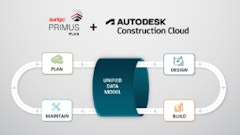
Why should you strive to become a monopoly? Because monopolies do not suffer pricing pressure due to competition. There are limits to what monopolies can charge for their products and services, but the limits are not forced by someone else slashing their price to get work or make sales.
As you are running a business one of your goals should be to pursue the obvious: strive to create a monopoly.
Don't reject this advice out of hand. To do so is throwing in the towel — waving the white flag. Becoming a monopoly requires creative thinking, innovation and an uncompromising dedication to the goal. As the financial benefits of being a monopoly are so incredibly attractive the time, effort and dedication it takes to become one are well worth it.
The word monopoly brings up such negative images. Historically the image was well deserved. Think of all the innovations that AT&T kept to itself to avoid reducing its bottom line. For example, back in the late '90s AT&T and the Bell companies were ordered by the courts to make DSL widely available yet they refused to. They claimed they didn't have the floor space in their switchmrooms to handle the equipment. A judge forced a field trip to visually verify that their claim was truthful and it turned out that the local switch had over 50% of its floor wide open.
The truth was that AT&T and the Bells were raking in money hand over fist as most home owners had added a second phone line for Internet service, and AT&T didn't want to suffer the expense of installing DSL equipment.
Another extreme example is cable companies whose prices are high and service quality low. This is why most people consider monopolies to be a bad thing and the world generates such negative feelings.
Let's put the shoe on the other foot. While monopolies may not be great from a customer's perspective they can be awesome from a business's perspective. Monopolies enjoy almost risk-free income. Even regulated monopolies are guaranteed to make a profit. Unregulated monopolies enjoy crazy profit margins. Have you seen Apple Computer's profit per employee ($400,000)?
Monopolies aren't always as obvious as you probably think. Some are quite small, and they are only illegal when they are practicing monopolistic.
Is the idea of creating a monopoly in the construction industry crazy? Well, kind of. The construction industry has almost no barrier to entry. Barriers to entry are the single most critical condition for a monopoly to exist. That is why true monopolies acting monopolistically are illegal.
The key factor in evaluating monopolistic behavior is "How is the market defined?" In our industry there are two strategies for creating a monopoly. The first is growing so big that you dominate the competition by force of will. You become the safe pick for projects.
The second strategy is creating a monopoly in a niche area. The size of your bottom line will not be as big but it will be far more predictable. For the remainder of this article we are going to focus on the strategy that is relevant to 99% of contractors: find and own a niche.
One proven approach is to find a technology for which you can obtain exclusive rights in your market and which gives you a real cost advantage or a perceived quality advantage. The technology might be a piece of equipment. It might be a special material. It might be special training. Ideally it would be a branded item that the supplier puts significant advertising resources behind.
Another proven niche approach is to become the unquestioned best at a specific type of project. A local excavating company grew rapidly because they were brilliant at predicting the viability and cost of turning undeveloped land into residential developments and always delivered on the budget and schedule. They were a low risk choice for the land developer to go with.
Another local company hopped on the low voltage electrical market long before their competition. By the time the market started growing due to computer networks, security systems, etc., this company employed the vast bulk of expert low voltage electricians.
Both companies were extremely profitable and grew consistently.
To become a quasi-monopoly you need to think strategically. Ask yourself "How can I create a competitive advantage that will not be easily duplicated?" This thought process is the key to running a profitable business over the long haul. Construction booms come and go. Playing the "me too" game will put you at risk. Playing the game strategically should protect your bottom line. Striving to create a mini-monopoly is playing the game strategically.




















